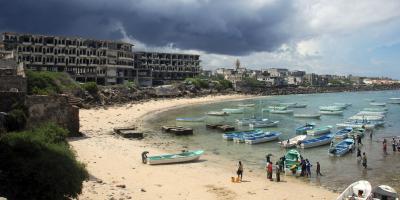Somalia’s Legal Renaissance: Progress Behind the Headlines
- November 29, 2024
- Posted by: admin
- Category: Legal Insights

In the evolving landscape of Somalia’s legal system, significant progress is being made despite ongoing challenges. Recent years have witnessed a remarkable transformation in how citizens engage with formal justice mechanisms, marking a shift from traditional dispute resolution to structured legal frameworks.
A notable indicator of this change is the increasing number of citizens seeking redress through formal courts – a stark contrast to the situation just a few years ago. This transition reflects growing public confidence in the judicial system and represents a significant step forward in establishing rule of law in the region.
The legal sector’s development has been particularly evident in three key areas:
- The successful reestablishment of the Somali Bar Association, bringing structure and regulation back to the legal profession
- Implementation of comprehensive training programs for judges, prosecutors, and advocates
- Development of initiatives to strengthen access to justice, especially for vulnerable populations
The constitutional process has also achieved remarkable milestones, including the incorporation of progressive elements such as the ban on female genital mutilation. This demonstrates Somalia’s commitment to aligning its legal framework with international standards while respecting local contexts.
“The courts are full of people seeking redress through the formal justice system. This wasn’t the case four or five years ago,” notes a senior legal observer in Mogadishu, highlighting the growing public trust in formal legal institutions.
While challenges remain, the progress in Somalia’s legal sector represents a significant step forward in the country’s journey toward establishing a robust rule of law. This evolution of the justice system continues to play a crucial role in the nation’s broader development and stability.
This article is part of our ongoing coverage of legal developments in East Africa.

